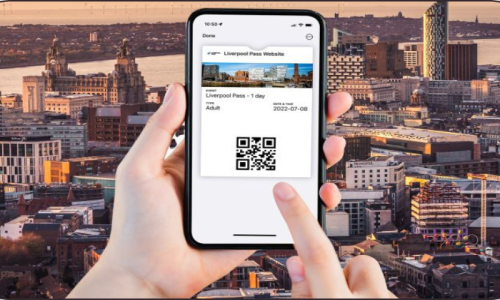Managing personal finances in the UK can initially seem overwhelming, but with the right tactics, you can learn to save more and spend wisely. Whether you're keen to trim expenses, manage your budget, or plan for the future, these tips are specially designed for people residing in the UK.
Smart Strategies to Lower Your Expenses and Boost Your Savings
Saving money isn't about giving up what you enjoy; it's about making informed, strategic decisions that support your financial objectives. Here are some clever ways to reduce costs:
Explore the Sharing Economy:
Utilize car-sharing services or rent out an extra room through platforms like Airbnb for additional income. This approach not only provides financial benefits but also supports a more sustainable lifestyle by reducing resource consumption.
Leverage Discount Codes and Cashback:
Websites such as Honey and TopCashback can help you save on online purchases. Regularly check these platforms before making purchases to maximize your savings.
Purchase in Bulk:
Buying non-perishable items in bulk can significantly lower expenses over time. Consider grocery items and household essentials that you use frequently to take advantage of bulk discounts.
Budgeting Apps: Tools to Simplify Your Financial Management
Budgeting apps can revolutionize the way you handle your finances. Here are some top UK Apps to consider:
Emma:
This app monitors spending across various accounts and provides insights into your financial habits. With its user-friendly interface, Emma helps you track expenses, categorize them, and set spending limits.
Yolt:
With its intuitive interface, Yolt categorizes expenses, offering clarity on spending habits. It allows you to connect multiple bank accounts, giving you a comprehensive view of your financial situation in one place.
Money Dashboard:
This app's comprehensive tools provide a clear picture of your financial landscape. It offers budgeting features, spending reports, and the ability to set financial goals, helping you stay on track.
Beware of Hidden Costs When Shopping Online
Online shopping offers convenience, but it can also come with unexpected costs. Here's what to watch out for:
Delivery Charges:
Verify if delivery is free or if there are extra fees. Some retailers offer free delivery over a certain purchase amount, so plan your shopping to take advantage of this.
Currency Conversion Fees:
Purchasing from international sites might incur conversion charges. Always check the currency and conversion fees when shopping on foreign websites to avoid surprises.
Subscription Pitfalls:
Be wary of free trials that transition into paid subscriptions without notice. Set reminders to cancel subscriptions before the trial period ends if you decide they are not for you.
Tips to Cut Down on Energy Bills at Home
Reducing household bills can result in significant savings. Here are ways to lower energy costs:
Switch Energy Providers:
Use services like Uswitch to compare suppliers and find the best rates. Regularly reviewing your energy plan can lead to significant savings over time.
Insulate Effectively:
Proper home insulation keeps warmth in, reducing heating needs. Consider adding insulation to your attic, walls, and floors to improve energy efficiency.
Upgrade to Energy-Efficient Appliances:
These can cut down on electricity usage significantly. Look for appliances with a high energy star rating to ensure you're making an eco-friendly choice.
Investment Advice for Beginners: Planning for the Future
Investing can be scary, but starting small can bring substantial long-term benefits. Here are some beginner-friendly tips:
Educate Yourself:
Dive into the basics through online courses or books. Understanding the fundamentals of investing will help you make informed decisions.
Opt for Low-Risk Investments:
Start with options like index funds to minimize risk. These investments offer steady returns and are less volatile compared to stocks.
Set Clear Objectives:
Define your investment goals, whether they involve retirement savings or a major purchase. Setting clear objectives will guide your investment strategy and keep you focused.
Additional Tips for Maintaining Financial Health
Conduct Regular Financial Check-Ups:
Dedicate time monthly to review your finances and adjust your budget as needed. Regular check-ups help you stay on top of your financial situation and make necessary changes promptly.
Build an Emergency Fund:
Aim to save three to six months' worth of expenses for unforeseen costs. An emergency fund provides peace of mind and financial security in case of unexpected events.
Stay Informed:
Keep abreast of financial news and trends to make informed decisions. Understanding the economic environment can help you make better investment and spending choices.
FAQs: Your Personal Finance Questions Answered
Q: How can I start saving more effectively?
A: Begin by setting a budget and identifying areas where you can reduce spending, like dining out or unused subscriptions. Track your expenses to see where your money goes and adjust your habits accordingly.
Q: Are budgeting apps secure to use?
A: Yes, most reputable budgeting apps use encryption and security measures to safeguard your data. Always choose apps from trusted sources and read reviews to ensure their reliability.
Q: Are there any free courses on investing?
A: Yes, many online platforms like Coursera and Khan Academy offer free courses on investing basics. These resources are a great way to start learning without any financial commitment.
Conclusion
Implementing these money-saving strategies can significantly enhance your personal finance management in the UK. Remember, achieving financial wellness is a long-term journey. Take small steps today for a more secure financial future.
























